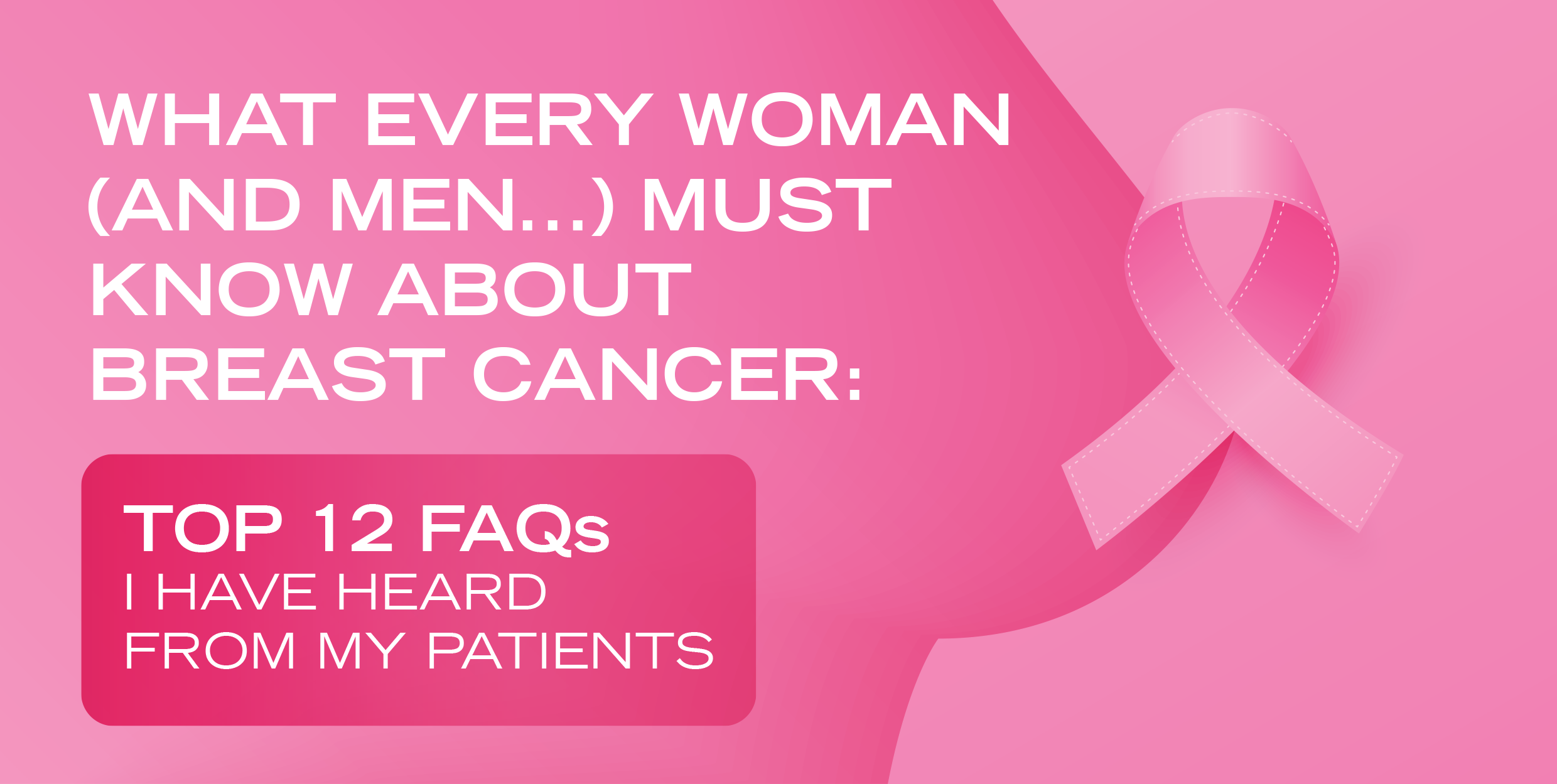
October is Breast Cancer Awareness Month! It’s PINK OCTOBER - a worldwide celebration to increase awareness and promote early detection for the number one cancer affecting women worldwide. The SOSP supports the celebration of Pink October and we will be publishing some information the general public needs to know about breast cancer.
By: J Rhoel De Leon, MD, FPCS,FACS
Chairman, Department of Surgery Capitol University Medical Center
-
What is breast cancer?
Breast Cancer is a malignancy involving the mammary glands (breast). Like any other cancer, it usually starts from a damage to a single cell leading to a rampant growth of those cells and spreading to other normal cells (tumor) with a potential to invade and spread to other organs (metastasis).
-
What is the incidence of breast cancer?
It is the most common cause of cancer and cancer death among women, with a worldwide incidence of breast cancer is 22.9% of all types of cancer. It causes almost half a million deaths a year worldwide, and about 1.4 million women were affected. In the Philippines it is the most common cause of cancer for both sexes combined.
-
Does it only affect women?
Although it commonly affects women, about 1.7% or close to 2 men for every 100 women will develop breast cancer.
-
Who are at higher risk of getting breast cancer?
There are identifiable risk factors:
- Increasing age – most common in the 50s but incidence starts to rise dramatically at age 40.
- Family History of Breast Cancer – about 20% of breast cancer has a family predisposition and 5% are truly hereditary (with identifiable genetic mutation like BRCA 1 and 2)
- Hormonal factors – late (above 35) or not being able to get pregnant, early menstruation (12 and below), late menopause (45 and above). In other words, the longer (number of years) a woman is exposed to the monthly menstruation, the higher the risk. Long term use of oral contraceptives is also a risk.
- Diet and lifestyle – alcohol and smoking are risk factors, as well as obesity.
- Pre-malignant breast lesions – if you have been diagnosed with a breast mass with atypia. You are at risk four-fold.
- There are other things associated with breast cancer but are not well-established, what is important to remember is that almost 80% of breast cancer only have BEING A WOMAN AND AGE above 40 as identifiable risk factor.
-
Can Breast Cancer be prevented? How do we detect it early?
Breast cancer cannot be prevented, but it can be cured when diagnosed early. The following are the recommended screening methods:
- SELF-BREAST EXAMINATION a week after menstruation
- BREAST EXAMINATION by a healthcare professional, annually for women 40 and above and every 2-3 years for younger women
- MAMMOGRAPHY annually beginning age 40
-
What is the first probable sign of breast cancer?
The presence of a mass or a thickening of the breast is the only symptom of breast cancer, rarely, it can present as a palpable lymph node in the armpit. However, with screening mammography, and seeing your doctor early – it can be detected at its earliest stage.
-
What should I do when I have breast cancer?
First, see a qualified doctor to take care of you. The first thing to be done is surgery. You can either have your whole breast removed (mastectomy) or have it preserved (breast conservation). Surgery is the cornerstone of treatment of breast cancer.
-
Are there other treatments needed after surgery?
ADJUVANT treatments are added after surgery – meaning, they are added to improve survival and decrease the chance that breast cancer will come back. The following are the adjuvant treatments:
- CHEMOTHERAPY is giving toxic medicines to kill whatever cancer cells remained in your system.
- RADIATION is added to improve local control and prevent breast cancer from coming back. If conservation was done, radiation is a necessity.
- HORMONAL TREATMENT in the form of oral drugs is given to those with HORMONE RESPONSIVE breast cancers (ER or PR positive tumors)
-
What has to be done when I complete treatment?
There is always that risk that it may come back, so you need to see your doctor on a regular basis for surveillance. He will be requesting some tests to monitor you.
-
What are the stages of breast cancer and its significance?
STAGE 0: Breast cancer cells are confined inside the milk ducts (In situ breast cancer) Cure is almost 100%.
STAGE I: Breast cancer less than 2 cm in size with no axillary spread or distant organ spread. About 90% 5-year survival and 80% 10-year survival.
STAGE II: More than two cm in size, with or without axillary spread. About 70% 5-year and 60% 10-year survival.
STAGE III: Locally advanced, more than 5 cm, with positive lymph nodes. 40% 5-year and 35% 10-year survival.
STAGE IV: Metastatic cancer has spread to other organs. 10% 5-year survival, less than 7% 10-year survival.
Survival and chance for cure depends on the stage. The earliest the stage, the greater chances for cure. However, more recently it has been proven that TUMOR BIOLOGY is of equal or probably greater importance than tumor burden. Tumor biology predicts how good or bad the tumor behaves regardless of tumor size. Some markers of biology are ER/PR status, tumor grade, HER 2 status. There are also GENOMIC tests that can be done to check on tumor biology and at the same time SPARE some women from CHEMOTHERAPY.
-
What to do when cancer returns?
It has to be determined where the cancer has recurred, some recurrence have better prognosis than the other, you have to see your doctor immediately.
There are many other questions that I get from my patients and in the many lectures I give to doctors and laymen alike. But these are the top 12 questions that everybody should basically know about breast cancer. There are many resources available on the web and on published articles. Just always remember, the best chance for breast cancer is detecting it early. So be screened and be informed.



